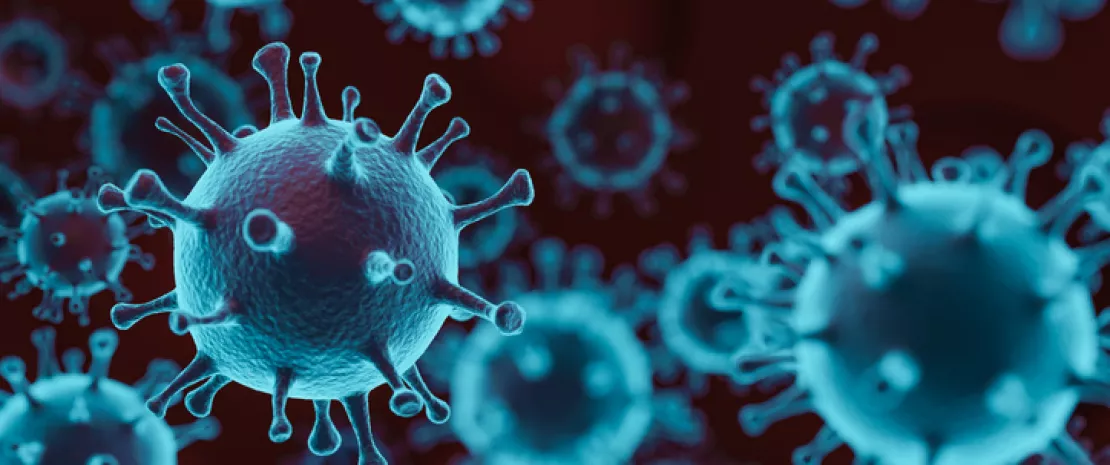Covid-19: gut microbiota involved?
The gut microbiota may influence the severity of Covid-19 via the modulation of immune responses. A dysbiosis seems to persist in infected patients even after the virus is eliminated.
Lay public section
Find here your dedicated section
Sources
This article is based on scientific information

About this article
Although Covid-19 is primarily a respiratory illness, recent work has pointed to the involvement of the gut microbiota in the disease. A new study conducted in early 2020 appears to confirm this hypothesis. The study involved 100 Covid-19 patients from two Hong Kong hospitals (average age: 36.4; 47 mild cases, 45 moderate cases, 5 severe cases and 3 critical cases) and 78 controls recruited before the pandemic. The aim was to find a link between the gut microbiota and disease severity, and to evaluate the persistence of any dysbiosis after virus clearance.
Gut dysbiosis in Covid-19 patients
The gut microbiota composition of 87 patients whose stools were collected during hospitalization showed a dysbiosis (more species from the Bacteroidetes phylum, fewer from the Actinobacteria phylum) compared to that of controls, which, according to the authors, was irrespective of any antibiotic treatment. This dysbiosis appeared to be linked to Covid-19 severity; and antibiotic therapy–received by 34% of patients–was the second most important factor in the severity of the disease. Certain immunomodulatory bacteria (Faecalibacterium prausnitzii, Bifidobacterium bifidum) were negatively correlated with severity after adjusting for antibiotic use and patient age. Despite this, the design of the study (heterogeneous clinical management, 31% of patients with comorbidities, etc.) prevents confirmation at this stage of the results obtained.
An associated immune response
The dysbiosis was also correlated with higher concentrations of inflammatory cytokines and other (sidenote: C-reactive protein, lactate dehydrogenase, aspartate aminotransferase and gamma-glutamyl transferase ) . Gut microbiota composition may be associated with the magnitude of immune response to Covid-19 and subsequent tissue damage and could thus play a role in regulating disease severity. However, according to the authors, another explanation is possible: the dysbiosis may simply be a response to patients’ health and immune states, rather than having any direct involvement in disease severity.
Persistent dysbiosis even after virus clearance
In addition, the gut microbiota composition of 27 patients surveyed up to 30 days after virus clearance differed from that of the controls: more B. dentium and Lactobacillus ruminis, less Eubacterium rectale, Ruminococcus bromii, F. prausnitzii and B. longum. This difference was observed whether the patients had received antibiotics or not (14 received antibiotics, 13 did not), although antibiotic treatment tended to accentuate it. According to the authors, this dysbiosis may contribute to the persistence of symptoms. However, a longer follow-up (e.g., 3 months to 1 year after virus clearance) is needed to confirm this link.






